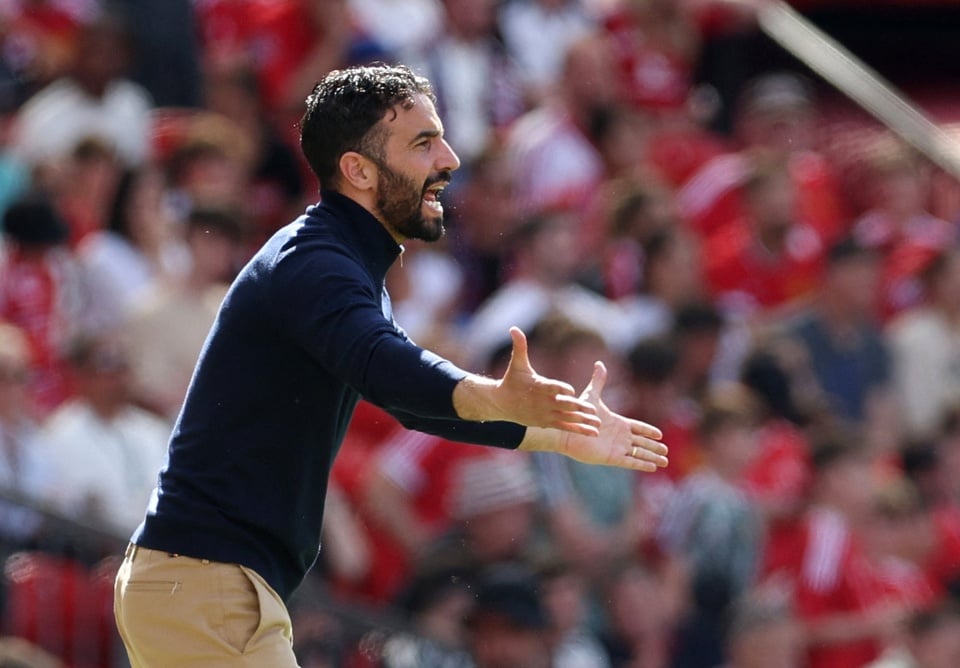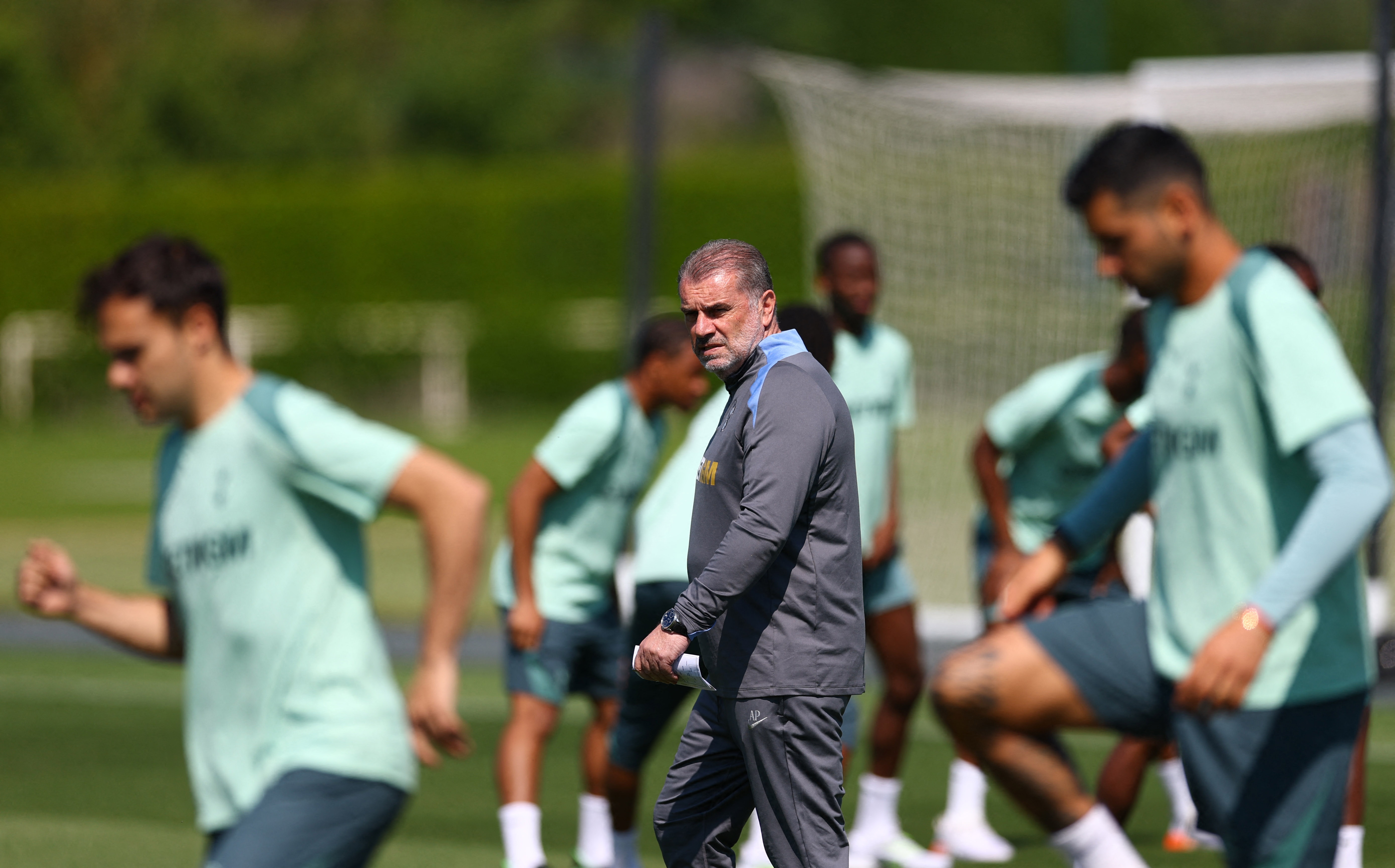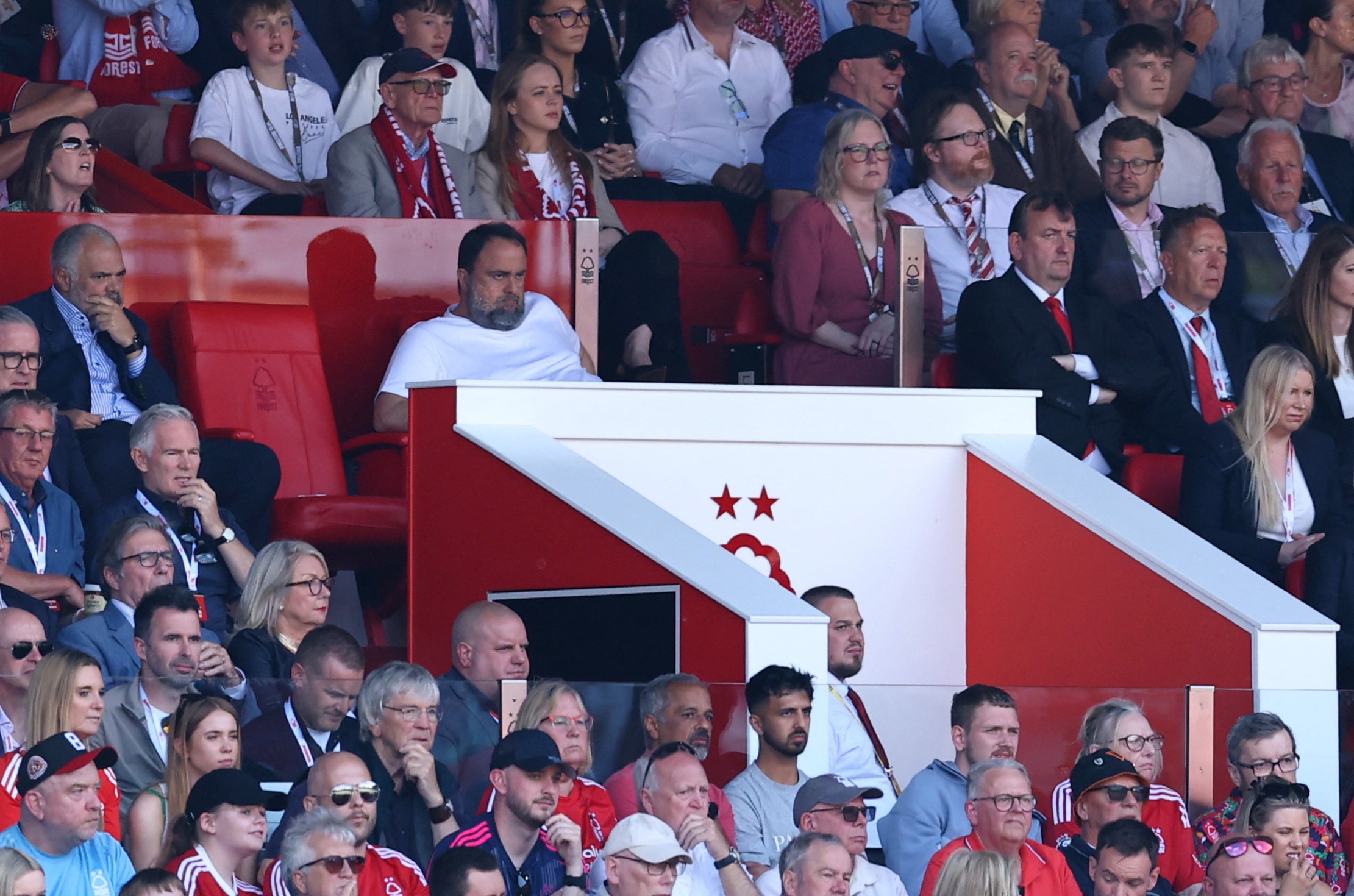 |
Ruben Amorim is struggling to revive Manchester United. |
The true value of football – sportsmanship , passion, and competitiveness – is being swallowed up by a heartless commercial machine, where what happens off the pitch is even more complicated and chaotic than what happens on the field.
The "post-ranking" era
Sepp Blatter once said, "Football drives people crazy." Never has this statement been so bitter and profound. We are living in the "post-league" era of the Premier League – where rankings, points, and achievements are no longer the sole measure of success. Instead, football has become an excuse for shapeless emotional storms, where both joy and disappointment are thoroughly commercialized.
Like politics in the "post-truth" age, football is no longer based on objective realities but is dominated by explosive emotions – amplified rages, staged outrages, and politicized tragedies. Is it still the sport of the people, or merely a game of power and money where we, the fans, are simply powerless spectators?
Look at Manchester United and Tottenham Hotspur – two once-famous clubs now teetering on the brink of mediocrity. It's absurd that teams ranked 4th and 9th on Deloitte's list of the world's richest clubs could be playing so poorly. Meanwhile, their managers – Ruben Amorim and Ange Postecoglou – are busy with press interviews discussing their futures instead of focusing on upcoming matches.
This isn't a failure of tactics or talent. This is the bankruptcy of ambition and culture—a painful testament to the fact that money can't buy soul and identity. These teams aren't simply losing on the pitch; they're losing the battle to define themselves.
 |
Tottenham Hotspur are in decline. |
What could be more disheartening than Liverpool being unable to enjoy the sweet moment of victory immediately after becoming Premier League champions? The 2-2 draw with Arsenal was not just a match; it symbolized the inherent contradictions of modern football.
Trent Alexander-Arnold, Liverpool's hero, was booed by the very fans who had once cheered his name. This wasn't a betrayal, but a tragedy – the joy of victory, barely beginning to fade, was replaced by endless demands.
When fans' emotions become a product consumed daily, where is there room for loyalty and long-term belief? Or are we inadvertently turning stadiums into theaters, where players are merely actors, and each match is just a performance for demanding audiences?
Nottingham Forest chairman Evangelos Marinakis is the perfect embodiment of arrogance in modern football. Even though his team has exceeded all expectations, it hasn't been enough to quell the owner's anger. His rage after the 2-2 draw with Leicester City was a bitter reminder that in modern football, success isn't measured by progress but by the gratification of the egos of those in power.
Marinakis's transfer of ownership to a "blind fund" to comply with UEFA regulations only further highlights the duality of modern football – on the one hand, established rules to protect fairness, and on the other, sophisticated loopholes that allow power to remain in the hands of those accustomed to dominating.
Football is no longer a sport for the people.
Premier League football is no longer simply 22 men chasing a ball on the pitch. It has become a massive media and emotional machine – where every frown from the manager, every outburst of anger from the fans, and every internal dispute is analyzed, exaggerated, and exploited to the fullest.
 |
Nottingham Forest chairman Evangelos Marinakis (seated in the middle, wearing a white shirt) attracted attention in the last round of matches. |
In today's football world, victory is no longer as important as the story surrounding it. Defeat is no longer as frightening as the silence and lack of attention. This is not the evolution of the sport; this is its degeneration—from a beautiful game to a relentless drama-making machine.
From the boos in Liverpool to the defeats of Manchester United and Tottenham, from Marinakis's arrogance to the conflicting emotions of the fans, all are pieces of a larger picture – a picture of a sport paying the price for its own success.
As Gareth Farrelly once bitterly remarked, "the commercialization of emotions" has become central to the Premier League. We are no longer fans; we are consumers.
Football is no longer a game; it's a product. And perhaps that's the greatest tragedy – when the cheers in the stadium are no longer the echoes of pure passion, but the sound of a colossal, relentlessly operating economic machine.
In a world where everything has a price, the Premier League has proven that even emotions can be bought and sold. And that, perhaps, is the scariest thing of all.
Source: https://znews.vn/premier-league-hon-loan-post1552978.html


![[Photo] Commemorating the unwavering friendship between Vietnam and Laos](/_next/image?url=https%3A%2F%2Fvphoto.vietnam.vn%2Fthumb%2F1200x675%2Fvietnam%2Fresource%2FIMAGE%2F2026%2F01%2F27%2F1769518372051_ndo_br_1-jpg.webp&w=3840&q=75)




![[Photo] Announcement Ceremony of the Art Program “Light Concert – Welcoming the New Year 2026”](/_next/image?url=https%3A%2F%2Fvphoto.vietnam.vn%2Fthumb%2F1200x675%2Fvietnam%2Fresource%2FIMAGE%2F2026%2F01%2F27%2F1769514762857_le-cong-bo-ct-hoa-nhac-anh-sang-1772-9042-jpg.webp&w=3840&q=75)

















































































![OCOP during Tet season: [Part 3] Ultra-thin rice paper takes off.](/_next/image?url=https%3A%2F%2Fvphoto.vietnam.vn%2Fthumb%2F402x226%2Fvietnam%2Fresource%2FIMAGE%2F2026%2F01%2F28%2F1769562783429_004-194121_651-081010.jpeg&w=3840&q=75)


![OCOP during Tet season: [Part 2] Hoa Thanh incense village glows red.](/_next/image?url=https%3A%2F%2Fvphoto.vietnam.vn%2Fthumb%2F402x226%2Fvietnam%2Fresource%2FIMAGE%2F2026%2F01%2F27%2F1769480573807_505139049_683408031333867_2820052735775418136_n-180643_808-092229.jpeg&w=3840&q=75)
![OCOP during Tet season: [Part 1] Ba Den custard apples in their 'golden season'](/_next/image?url=https%3A%2F%2Fvphoto.vietnam.vn%2Fthumb%2F402x226%2Fvietnam%2Fresource%2FIMAGE%2F2026%2F01%2F26%2F1769417540049_03-174213_554-154843.jpeg&w=3840&q=75)






Comment (0)